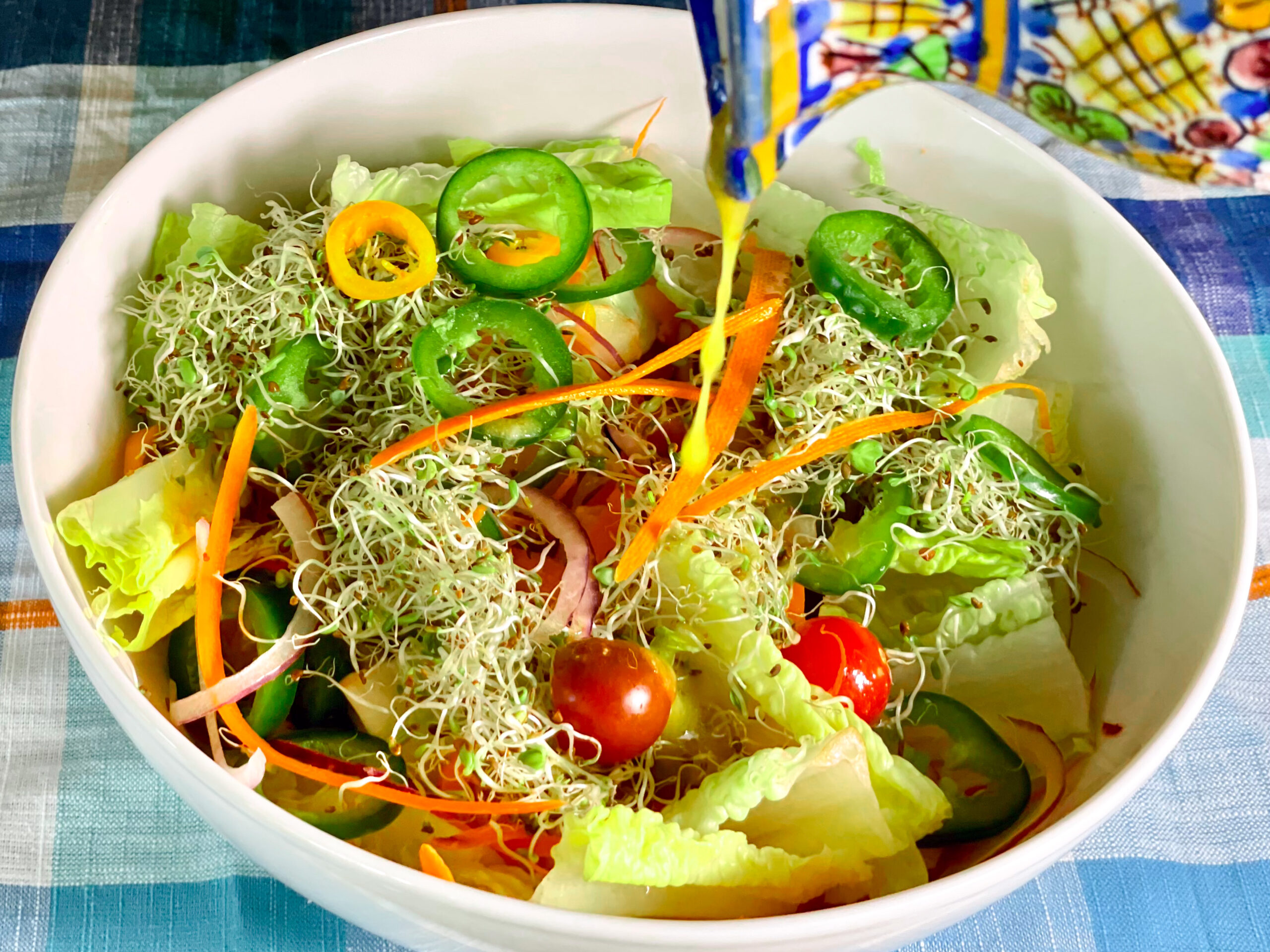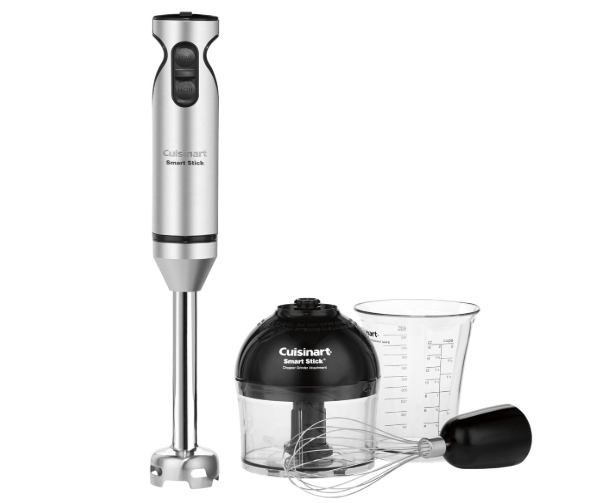0 Comments
share this

I believe a salad is truly enhanced by the quality of the dressing. When I was in high school, I spent some time in France, eating delicious food with my French family. When my French friends came to visit me in the States, they decided to make me a salad and chocolate mousse. (I cannot believe I remember that so clearly, but then again, I am so food driven!) I remember the subtle flavor and silky texture of that well dressed salad. It was delicious! A vinaigrette is typically French. As the name implies, "vinaigre" means vinegar in French. Any vinegar based dressing is a vinaigrette. The challenge of making a vinaigrette is to keep the oil and acid from separating!
On a safari trip in a private game park in South Africa, I had a salad dressing that was amazing. I asked what was in it, and I realized this particular component balances the dressing. The chef added a "sweet". She added grape juice concentrate and it made all the difference.
Over the years, I've honed in on the proportions and components of an easy basic vinaigrette dressing that will taste delicious with whatever ingredients you have on hand and a specific recipe is not really required.
Tips to making an easy basic vinaigrette dressing
The basic components of a vinaigrette are an acid, an oil, dijon mustard as an emulsifier, a "sweet", fresh garlic (a must!) and spices. Here is a way to easily remember how to make a vinaigrette without needing a recipe. Here are the proportions. Think 1/4!
Equal parts of acid and oil:
1/4 cup acid
1/4 cup oil
1/4 tsp salt
1/4 tsp fresh thyme / oregano
1-2 cloves of fresh minced garlic.
1 tsp mustard
pinch of pepper
If you commit this to memory, you'll be able to whip up a vinaigrette whenever you want and impress everyone around you!
Acid
A subtle sourness or a really tangy dressing comes from the acid you choose. Acids can range from a mild rice vinegar to a tangy red vinegar and everything in between. Some of my favorite acids that I use are fresh lemon or lime juice, apple cider vinegar and white champagne vinegar. I don't recommend white distilled vinegar, because it has a very sharp bite.
Oil
I prefer using extra virgin, first press olive oil due to its health benefits. You will need a ration of almost twice as much oil to acid for any vinaigrette.
Emulsifier
An emulsifier is able to blend and combine liquids that normally don't mix such as oil and water. This results in thickening the liquid. For the emulsifier for the salad vinaigrette, I use dijon mustard. The taste of the mustard is evident in the dressing so use a good tasting mustard.
Garlic
Fresh garlic is a must! Mince it using a garlic mincer rather than chopping it as size of the chopped garlic tends to be too large for the dressing. If you aren't able to mince the garlic, allow the salad vinaigrette to rest for at least a half an hour for the flavors to mellow out. However, if you are going to mix it in an immersion blender, a coarse chop will work. I don't recommend placing whole cloves in the mixture, because the immersion blender does not quite do the best job of finely chopping cloves of garlic
Herbs and spices
The essential spices are salt and pepper. Herbs can be used such as fresh or dried oregano, thyme etc,
Sweet
A "sweet" needs to be added to the vinaigrette to balance out the acid. The "sweet" can be either honey, grape juice concentrate, jellies, jams, spreads or preserves. If you are using a preserve, you may want to use a hand blender to break down the chunks of fruit in the preserve.
Blending
A hand whisk is all you need. The key is to continually whisk the oil and vinegar into the emulsifier mixture to keep it from separating. See video. However, if you are making a large batch of dressing, use a hand or immersion blender.
Storing your dressing
Store your dressing in a sealed, glass jar and refrigerate. It can keep for a few weeks in the refrigerator. The olive oil may separate and harden. Bring the salad to room temperature to liquify the olive oil. Shake the container to allow the mustard to emulsify the olive oil and vinegar. Enjoy and happy experimenting!
Need meal ideas?
EASY, HEALTHY, DELICIOUS!
DON'T MISS A RECIPE

